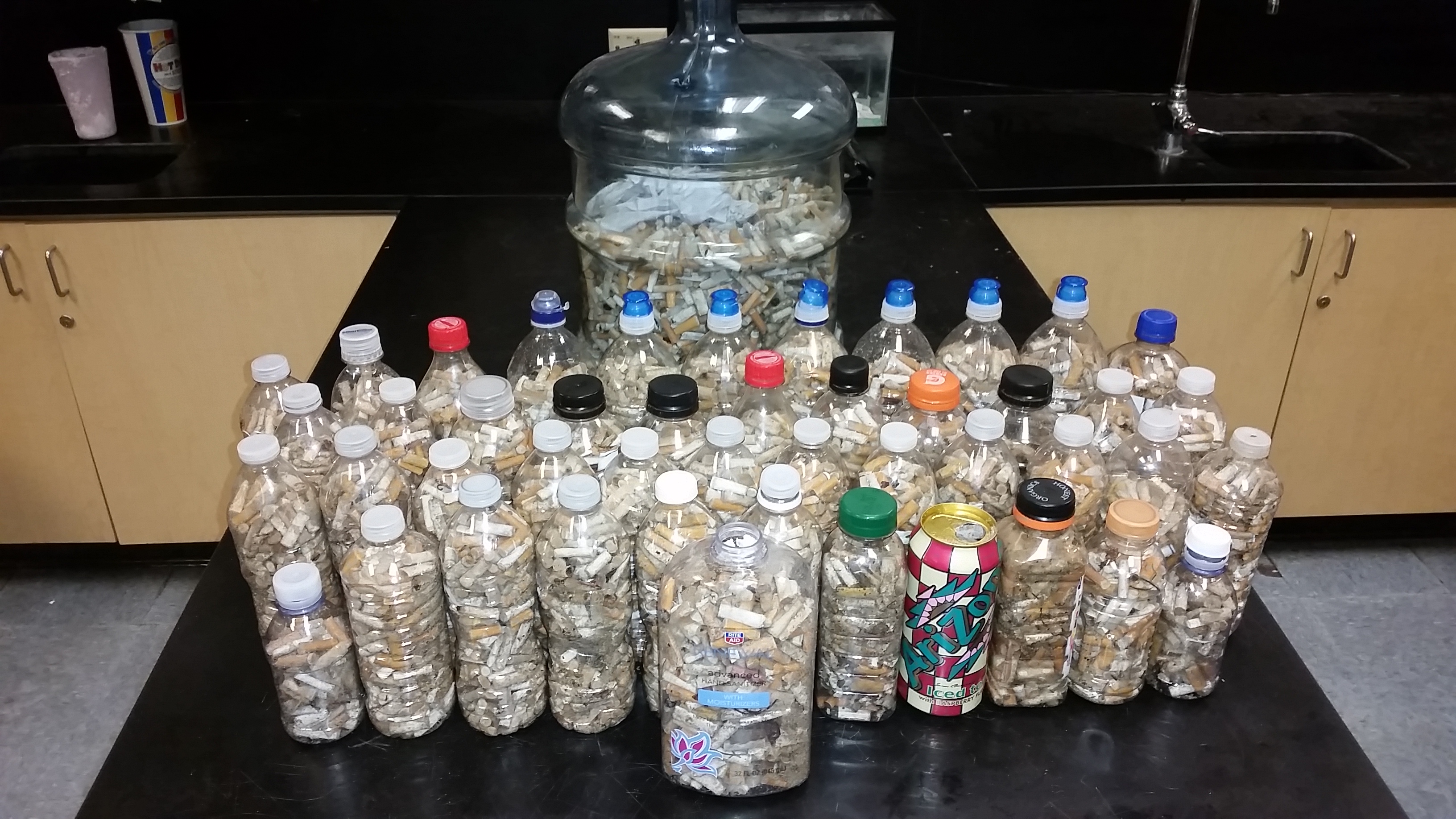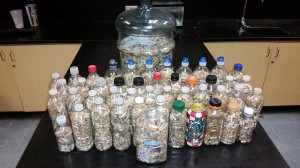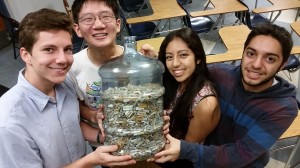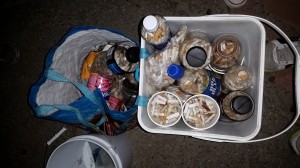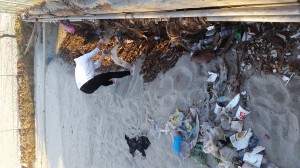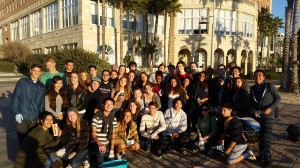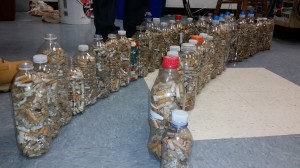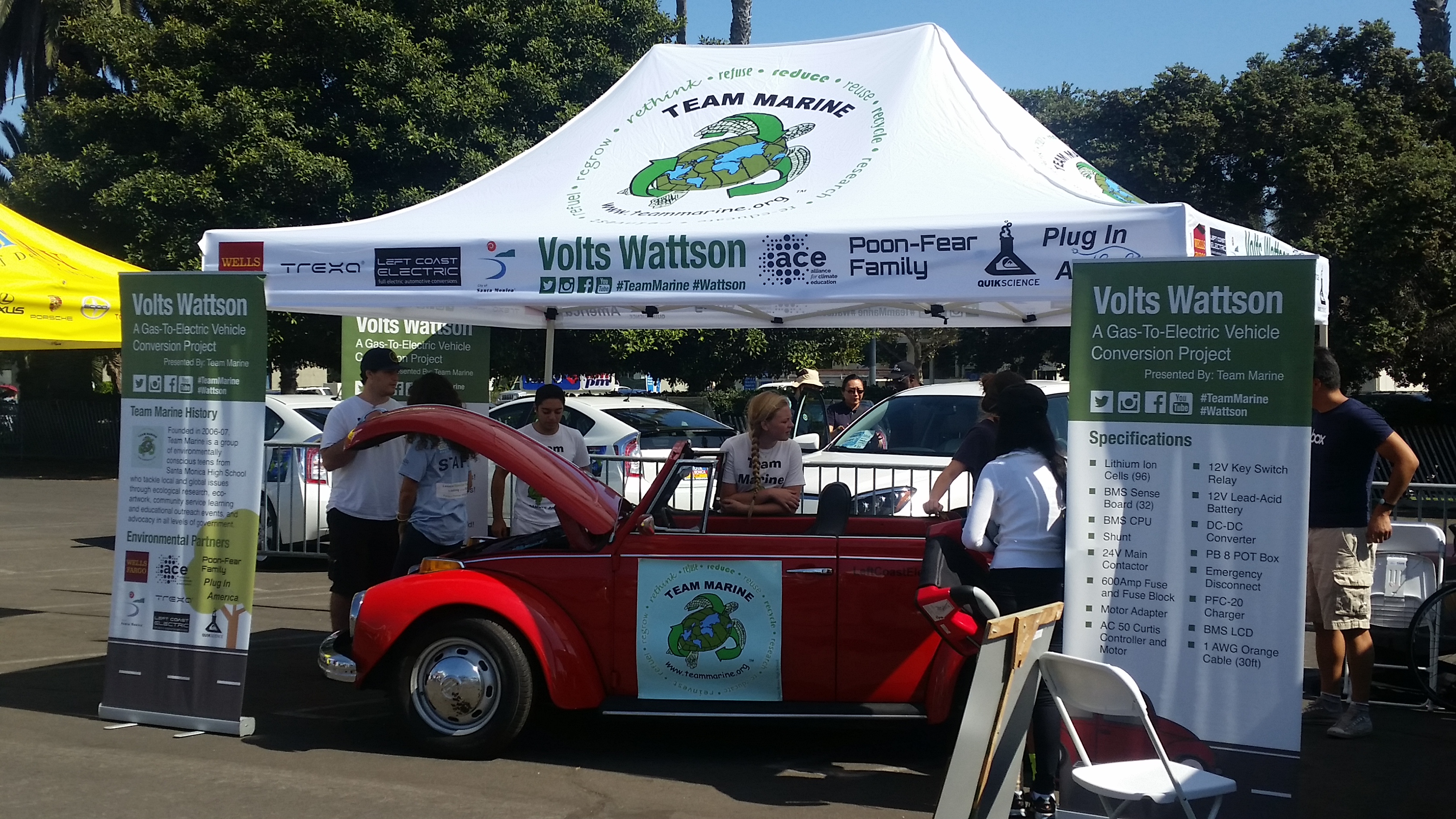In order to estimate the amount of cigarette butts that escape proper disposal and currently litter our oceans, Team Marine conducted two beach cleanups: one on November 20th and another on December 5th of 2014. Both of these cleanups occurred in the area surrounding the Pico-Kenter storm drain. The first cleanup took place two weeks after the “first flush” while the second cleanup occurred two days after a rain. Members of high school and college Biology, Marine Biology and Environmental Science classes also helped with the collection. After collecting the cigarettes, Team Marine weighed, counted and calculated the average amounts of cigarettes. We found that during the first collection 7,642 cigarette were collected while 12,938 cigarettes were collected in the second, leaving the total amount of cigarettes at a whopping 20,580. While we were proud to have collected and recorded so much trash, these astonishing numbers prove that there is a lot of work to be done. And unless we make significant change to the way we consume and dispose of our waste, our predicament will only become worse
Alt Car Expo
Expo Marker Collection
Today we rescued some boxes from the trash bins to reuse them and create Expo marker collections boxes. We decorated them and plan to distribute them to other schools in our district to expand our collection of expo markers. These markers, which are toxic and single use, are thrown away each year by teachers and are not recycled. We, as Team Marine, collect expo markers for a project that will raise awareness and educate people about the abundance of markers winding up in landfills. These boxes will contribute to our large collection and will encourage districts to implement Auspens. Auspens are refillable canisters that have aluminum and non toxic markers made from recyclable materials. These dry erase markers can be bought in bulk for schools and will lead to a zero plastic pollution waste from classrooms. This action of rethinking our plastic consumption even in our districts will draw attention to a greater need of a sustainable policy and will highlight how serious this problem really is.
Check out the Auspens site for more info: http://www.auspen.us/


